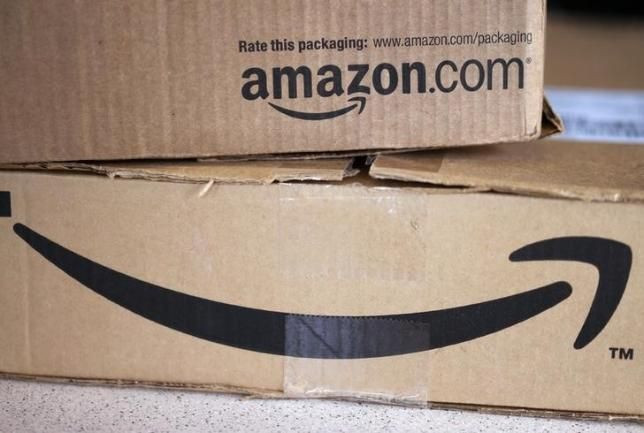Why the Grocery Business Could Be A Big Part of Amazon's Future Growth

Amazon (NASDAQ:AMZN) is doubling down on the grocery business. This month, the company announced that it would be launching a new grocery chain, one that would be an alternative to its existing Whole Foods brand. The company is currently hiring for positions in Woodland Hills, California, but more cities could be added early next year -- reports indicate that Amazon has signed leases for two other locations.
Why doesn't Amazon just open more Whole Foods locations?
While it may seem odd for Amazon to be launching a whole new brand of grocery stores, given that it has the popular Whole Foods brand in its portfolio already, it's a way for the company to reach different types of customers. Whole Foods has already established a brand over the years, and a new type of store gives Amazon the opportunity to start from scratch with a new logo and brand that could be more identifiable to its customers. It also allows the company to go in a different direction.
In a recent statement, Amazon said: "When it comes to grocery shopping, we know customers love choice, and this new store offers another grocery option that's distinct from Whole Foods Market, which continues to grow and remain the leader in quality natural and organic food."
Amazon isn't even looking to use its Amazon Go technology, and instead plans to have regular checkout lines. It's a sign that the company may be looking to compete in a much broader segment of the market, perhaps more in line with what Walmart offers customers, with a broad spectrum of products in its grocery section.
The grocery business has been a challenge for the company thus far
Out of the gate, Amazon has tried to make Whole Foods competitive on price. But it hasn't been easy and the company has even had to raise its prices. The grocery business is a very competitive one, and it's clear that things have not been going exactly as planned. In Amazon's most recent quarterly results, sales from physical stores, which CFO Brian Olsavsky says are "principally Whole Foods revenue," were actually down 1.3% from the previous year. This was the only major segment of Amazon's net sales that didn't show any growth.
Going more mainstream and offering a more generic grocery store could certainly help bring in more sales, but will also come with added costs. And with Amazon looking to pay food-service associates and other grocery staff $15.35 per hour plus benefits, it will be at a disadvantage compared to companies that don't offer wages as generous to their staff. While the pay scale may give the company a boost in terms of social responsibility, it won't do its bottom line any favors, and that's not ideal for a company that has already had razor-thin, sometimes negative, profit margins over the years.
What does this mean for investors?
Getting into the grocery business looks like a long-term move for Amazon. By acquiring Whole Foods and now launching a new brand of grocery stores, the company is hoping to make groceries a much bigger part of its operations. At just 6% of total net sales, physical stores are still a very small part of Amazon's business, but they offer a lot of growth potential, especially as the company expands more into the grocery business. And grocery shopping is much more of a necessity than online shopping, which could help make Amazon a more stable buy over the long term.
However, the big question for investors is how many years it may take for Amazon to become a formidable threat in the industry. Depending on how aggressive it is in its expansion into grocery stores, the company could incur significant costs and perhaps losses along the way. And with the stock currently trading at more than 60 times earnings, it could be too pricey an investment to make today, especially if the tech stock's financials take even more of a hit.
This article originally appeared in the Motley Fool.
John Mackey, CEO of Whole Foods Market, an Amazon subsidiary, is a member of The Motley Fool’s board of directors. David Jagielski has no position in any of the stocks mentioned. The Motley Fool owns shares of and recommends Amazon. The Motley Fool has a disclosure policy.





















